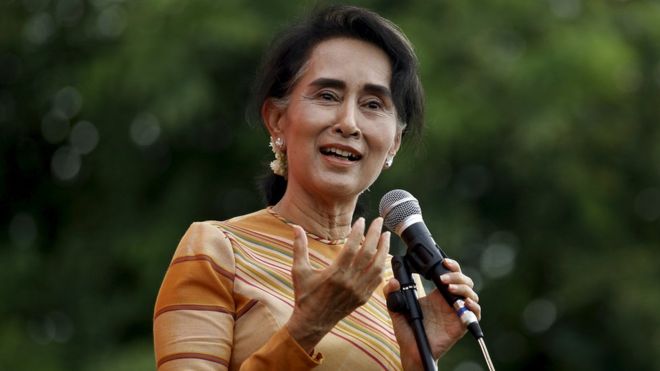Kay Mar Maung, BA Law and Development
The days leading up to November 8 were stressful to say the least. People from Myanmar and their counterparts from all over the world anxiously shared their opinions and their hopeful thoughts about the election on every social media platform. The country had been under an oppressive military regime since General Ne Win’s take over in 1962, which finally ended with the foundation of the Parliament and a new constitution. Then, beginning in 2010, Myanmar endured five years under a so called ‘disciplined democracy’ with the legislative and executive bodies of the government being largely under the control of the USDP, a political party formed with former military officers. 2015 brings a relatively free and fair election that the people of Myanmar have been patiently been waiting for.
The election process is a long, tiring and complicated one. Civilians vote for members of the Parliament who go on to elect two different presidential candidates in the Lower and Upper Houses, respectively. The appointed military officers who hold 25% of the total number of seats in the Parliament then choose the third presidential candidate. The candidate with most votes becomes President while the next two take on the role of Vice President.
While most of the nation marched to local offices to vote with high hopes, the ethnic minority group Rohingyas were left out of this crucial event in Myanmar history. They were stripped of their citizenship and their right to vote when their ID cards were revoked. The international audience patiently waited for the famous Nobel Peace Prize winner Aung San Suu Kyi, otherwise known as ‘The Lady’, to address the issue and stand up for the oppressed group currently living as refugees in western Myanmar. During the months leading up to the election, Aung San Suu Kyi and the National League for Democracy (NLD) neglected to address the issue of the Rohingyas due to fear of losing votes from a large number of people in the country who were already criticizing her for being a sympathizer of the minority. Islamophobia runs rampant in the country with the existence of the Buddhist extremist group MaBaTha, lead by the infamous Wirathu. Myanmar is predominantly a Buddhist country, with 89% of its population being Buddhist. Tyrannical as he may be, Wirathu holds a lot of influence over the Burmese people, while the rest criticize him in secret as it is a huge stigma to speak ill of a monk.
It has now been a few weeks since the results were announced, and as expected, the opposition party led by Aung San Suu Kyi won by a landslide and acquired 77% of the seats. This gives them the majority of the seats even with the reserved seats for military officials. The Union Solidarity and Development Party acquired the second largest number of seats and the rest were dispersed among the ethnic minority political groups. For many people in the country, this was a concrete mark of the newly founded democracy. However, this is only the first of many steps and reforms that need to be executed.
The future of the country remains uncertain and unpredictable. Aung San Suu Kyi still cannot be president due to a clause in the constitution that prevents people with immediate family members who are citizens of other nations to run. Her party, NLD, does not have many other members who can step up for the job as she has not even named a successor despite her old age. There aren’t any other prominent actors within the Myanmar political platform who have expressed their wish to run. Already, there have been problems arising with the rebel groups from the northern and eastern region and civil war breaking out. Many ethnic political parties have also expressed worry over their voices going unheard due to inadequate representation. There is a lot of hope and responsibility entrusted in the new government. With so much to be done, it will be interesting to see how events will unfold in the future.
